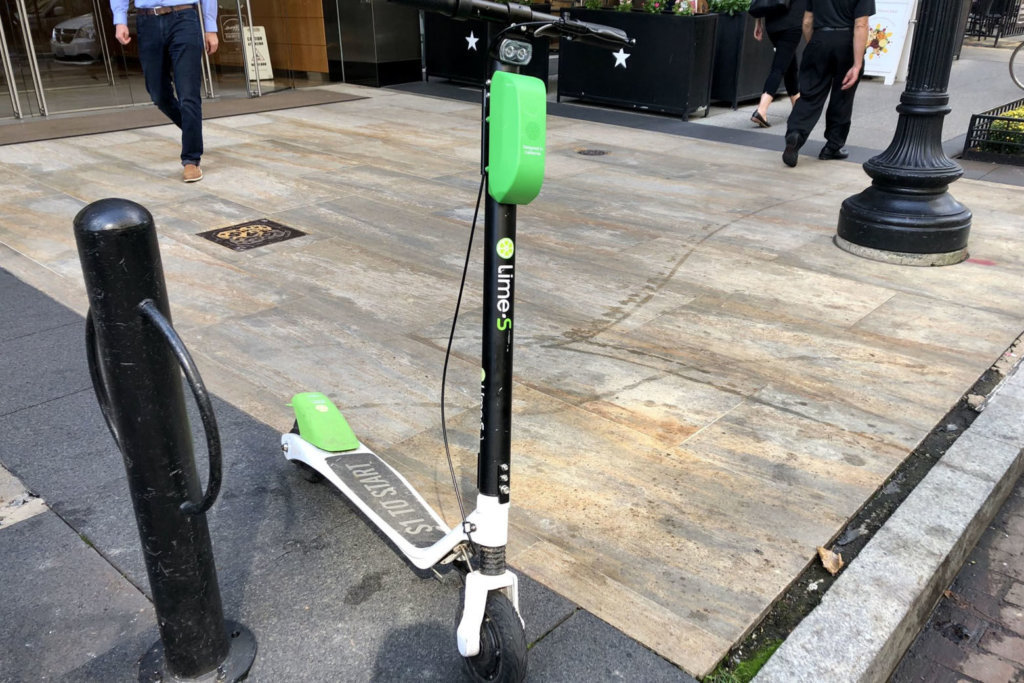
Some drivers hate sharing the road with electronic scooters. Many people have come to rely on them to get around. Now, D.C. leaders are discussing how to curb what many consider the Wild West of commuting.
“For these devices to be part of our future plans, the behavior has to be fixed. Scooter users must have safety at the forefront of their minds,” said Ward 3 Councilmember Mary Cheh, chair of the Committee on Transportation and the Environment, in a hearing Monday.
“Many scooter users weave in and out of pedestrians on the sidewalk at high speeds, weave in and out of traffic on the road, do not follow important safety rules, ride while they are inebriated and routinely discard scooters that block pedestrians’ walkways, private driveways, and handicapped-accessible ramps,” Cheh said.
Integrating the latest mode of transportation has been a challenge, and Cheh said changes are needed so scooter riders can coexist on the streets with cyclists, drivers and pedestrians. Before the council are two bills on the topic to regulate how e-scooters are used in the city.
Cheh said the District Department of Transportation has added rules to the terms and conditions that they signed with each electric mobility device operator.
“But we need more enforcement, and we certainly need better education than is provided by the terms and conditions,” she said before hearing public comment.
Multiple witnesses testified throughout the hearing, but Brooke Finland’s testimony stood out: She was nearly brought to tears recounting how her 8-year-old son was hit by a teenager driving a scooter.
“As things currently stand, the electric scooters feel very lawless and unregulated, and underage drivers are taking full advantage of this,” she said. “Take a drive through Tenleytown, when school gets out, and you will see many kids on these scooters — some riding double, some driving on the sidewalk and some on the road.”
She added that she doesn’t see any of the teens wearing helmets, and wants scooters banned from school zones.
Cheh wants to see enforcement in the city center and anticipates signs will need to be put up asking scooter users walk on the sidewalk in that area.
ANC Commissioner Chuck Elkins asked for more stringent education criteria for users to increase safety. He echoed others’ suggestions that a driver’s license should be required and that the minimum age to drive a scooter, 18, should be enforced.
Cheh said she hopes to move quickly on the Electric Mobility Devices Amendment Act of 2019 before a surge of e-scooters floods the city next year.
Cheh said the council had been told that by the beginning of 2020, there could be up to 10,000 scooters available in the District — “about two times what we have now” — and up to 20,000 by next summer.
“So, we need to think about the basics — you know, who can ride, where can they ride, and how fast can they go,” Cheh said.
The amendment aims to set a scooter speed limit of 15 mph on the road and 6 mph on the sidewalk. The move “will allow scooter riders to keep up with bikes in bike lanes and feel less compelled to ride on sidewalks,” said resident Mark Sussman.
Every morning, D.C. requires that 10% of a scooter company’s inventory be redistributed to each of the city’s eight wards to increase the equality of their use. However, Cheh said, the council needs to address how users are parking the scooters, often haphazardly.
“I understand that the DDOT is working on identifying areas … where scooters can be parked so that people can know where to put them,” she said.








